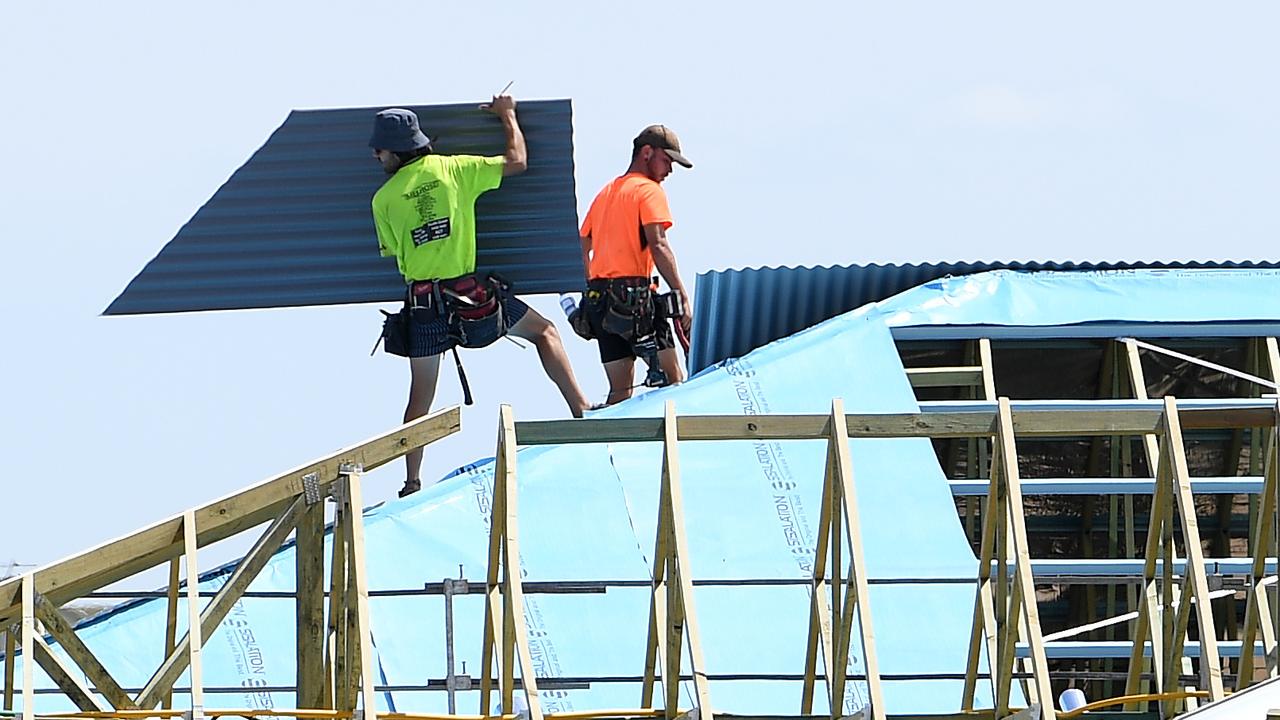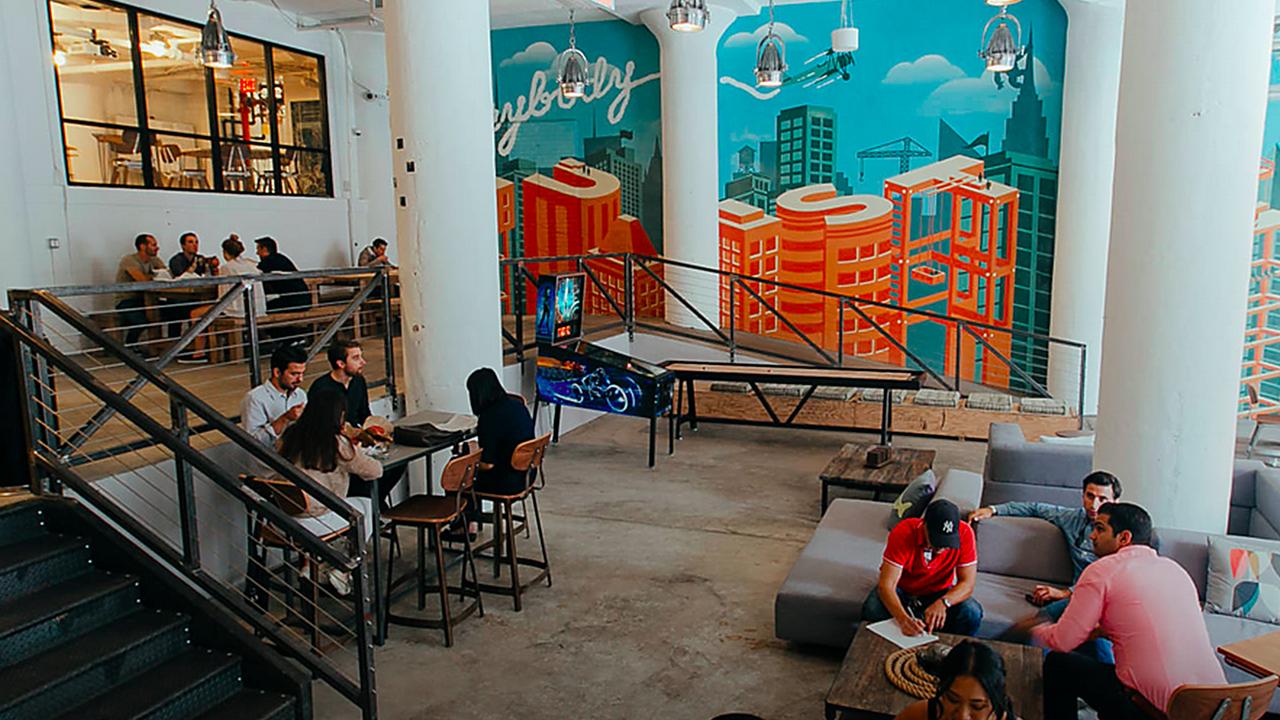US businesses show us how to get it done
Australia has not created a single new truly big business in 100 years. America has created five in 40 years.
If Australia’s largest business by market capitalisation, BHP Billiton, were based in New York rather than Melbourne it would just make it into the 30 biggest companies in America.
The US economy is 12 times bigger than the Australian economy, so everything is bigger. But not necessarily better, right? Australian business is just as agile and innovative as American business.
Entrepreneurs in Australia are just as canny as their American counterparts, right? Actually, no.
Actually, Australia is a backwater when compared to the scale, boldness and sheer commercial ingenuity of the greatest economic force the world has known. Never misunderstand the commercial and the military relativity between the US and Australia.
Five of the 10 biggest businesses in America, including the No 1, Apple, which is six times bigger than BHP by market cap, were formed during the working life of the baby boomer generation: Apple in 1976; Microsoft a year earlier; Amazon in 1994; Google in 1998; Facebook in 2004.
There is much to criticise about America. What is beyond question is the nation’s unparalleled ability to cultivate and monetise innovation. We would do well to try to understand how they do it.
But Australia is innovative in our own 12-times-smaller way, aren’t we? We invented the black-box flight recorder and the cardboard wine cask, didn’t we?
Consider the 10 biggest businesses in Australia. The list comprises five banks, a miner, two retailers, a telco and a biotech company. Just putting Macquarie (formed in 1970 out of Hill Samuel) to one side, does this mean that the most recently created big business on the Australian continent (Woolworths) was formed in 1924? Australia has not created a single new truly big business in 100 years. America has created five in 40 years.
We handed out franchises a century ago in mining, banking, retailing and telcos, and we haven’t moved on. These businesses have prospered because our population has increased sixfold from four million at federation to 24 million today.
As long as the nation grows, the banks and retailers and probably the telco will prosper too. As long as we the Australian people rank among the richest people on earth.
To view graphics on our apps, click here
It is fair to say we have enjoyed complacent prosperity for decades and as we have access to world markets assured by geopolitical alliance to America our mining companies will also prosper. Why change anything? We’re rich enough. But do you think the biggest businesses on the Australian continent today, and that have been so for more than a century, will still dominate the economy in 10 or 20 years?
Or will there be disruption, most likely imposed from beyond by new technology, new business models, and new geopolitical alignment that will force a reorganisation of Australian business?
While I’m at it, why is there no agribusiness business in the Australian top 10? We control a resource-rich continent, we should have the world’s biggest mining company. But we also have a competitive advantage in agriculture. Wesfarmers is a retailer, not an agribusiness business. New Zealand has dairy company Fonterra as its biggest business. America has Cargill and Bunge as globally significant agribusinesses.
Why didn’t a bigger Elders or a successful S Kidman & Co come out of, say, Adelaide in the 1980s, built up from a local base of wheat and grazing, then move into cotton and then to places overseas to acquire agribusinesses in South Africa and Argentina? Why? Because of complacent prosperity. We’re doing well enough. There is no fire in our belly. At least that’s how it appears.
There will be no more Toyotas or Alcoas or GMHs or Fords coming to Australia employing locals in the thousands and on our terms. Those days are gone. They belonged to a 60-year bubble that lasted between 1950 and 2010.
We Australians will have to create our own businesses. What’s our track record like? Not too good, I would suggest.
In fact I would suggest we develop a culture where business and entrepreneurship is supported and admired.
I have an inconvenient truth for those sceptical of the motives of the business community. It’s really hard to start a business, to employ people, to pay tax, to deliver a return to investors and to grow that business profitably from a small enterprise. Not many people can do this. We need to find and support such people or we need to develop a culture that cultivates daring entrepreneurs prepared to risk their capital and career to achieve success.
We need to develop a culture where we celebrate socially responsible and successful entrepreneurs. We need to get to a position where the Australian of the Year can be confidently selected from within the business community for their contribution to the nation’s prosperity. Just once in 30 years such a nomination would I believe inspire others to do the same: create a business, employ workers, pay tax and be a good corporate citizen.
This raises the issue of where business opportunity is likely to focus in the short term. In the first 16 years of the 21st century the Australian workforce expanded by 3.3 million jobs although 300,000 jobs have been lost, mostly in manufacturing and agriculture. We are producing more agricultural output than ever; it’s just that with mechanisation we need less labour in the regions. And manufacturing is being offshored to the likes of Guangzhou.
Job growth as a fact this century has focused on health (up 694,000 jobs), professional services (up 407,000), construction (up 396,000) and education (up 339,000). The common denominator to this job growth is skills, professional and technical. It is the unskilled and low-skilled workers in manufacturing and agriculture who are being displaced.
We are and I suspect America too is evolving into a society comprised of knowledge workers who share in prosperity, and of unskilled and disenfranchised workers who are being displaced.
The question I have for the innovation-hub set is this. With every fintech development, with every robotification, with every advance in artificial intelligence, who benefits and who loses? Because it looks like it’s the knowledge worker and the investor who benefits and it’s the unskilled worker who loses.
How do we organise a fair and equitable society over the next 20 years during a period in which traditional blue-collar and low-grade white-collar jobs are being displaced? There is a distinct possibility that we are creating a two-tiered society comprised of winners and losers.
I don’t think this is the Australia we want to leave to the next generation. I think we should build an Australia where everyone, rich and poor, skilled and unskilled, gets the chance to compete for a share in the prosperity of this blessed and fortunate land.
Bernard Salt is a KPMG partner and an adjunct professor at Curtin University Business School. Research by Simon Kuestenmacher.
bsalt@kpmg.com.au




To join the conversation, please log in. Don't have an account? Register
Join the conversation, you are commenting as Logout